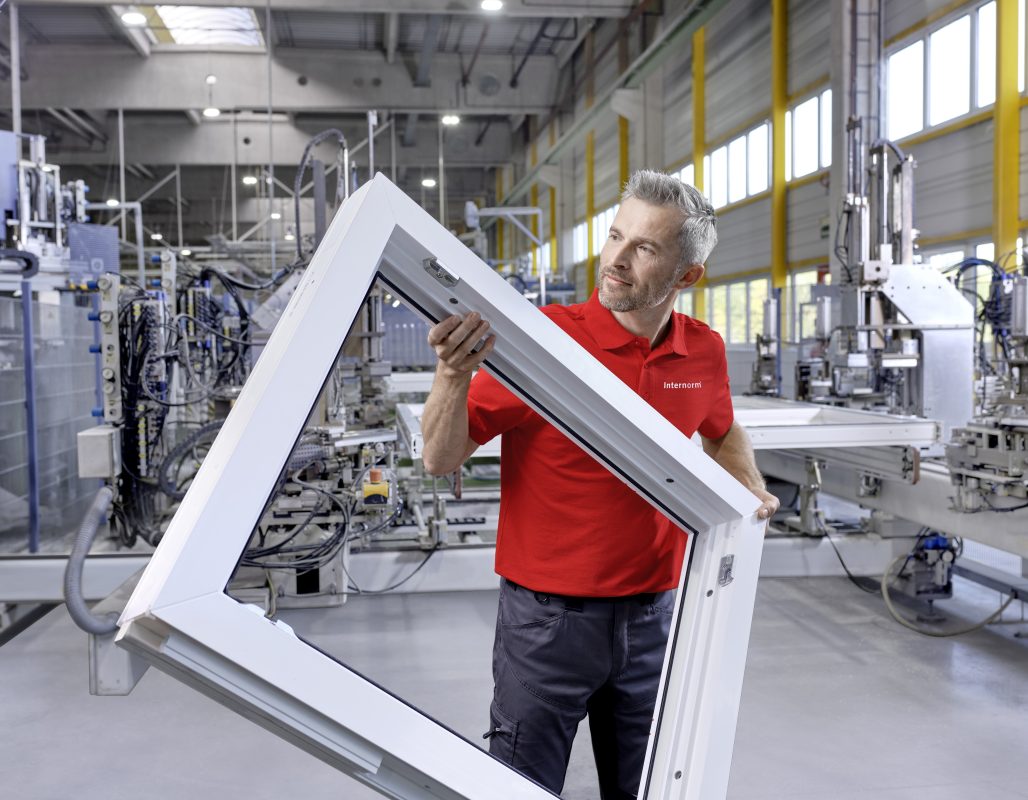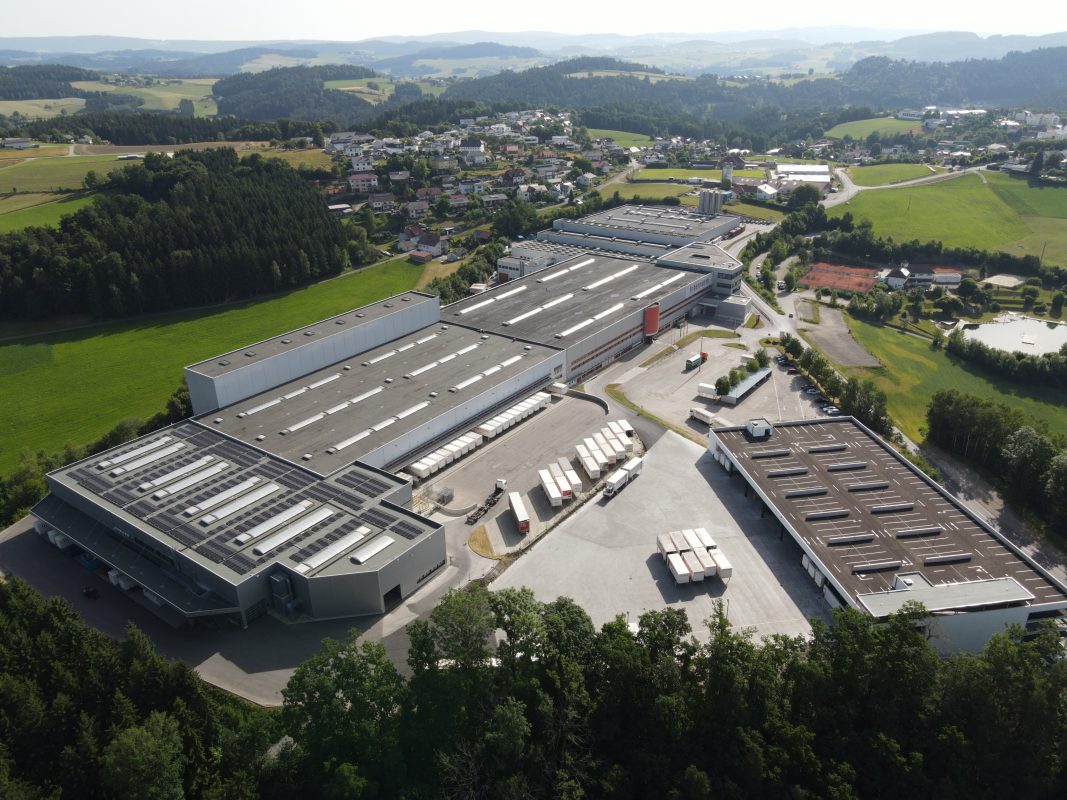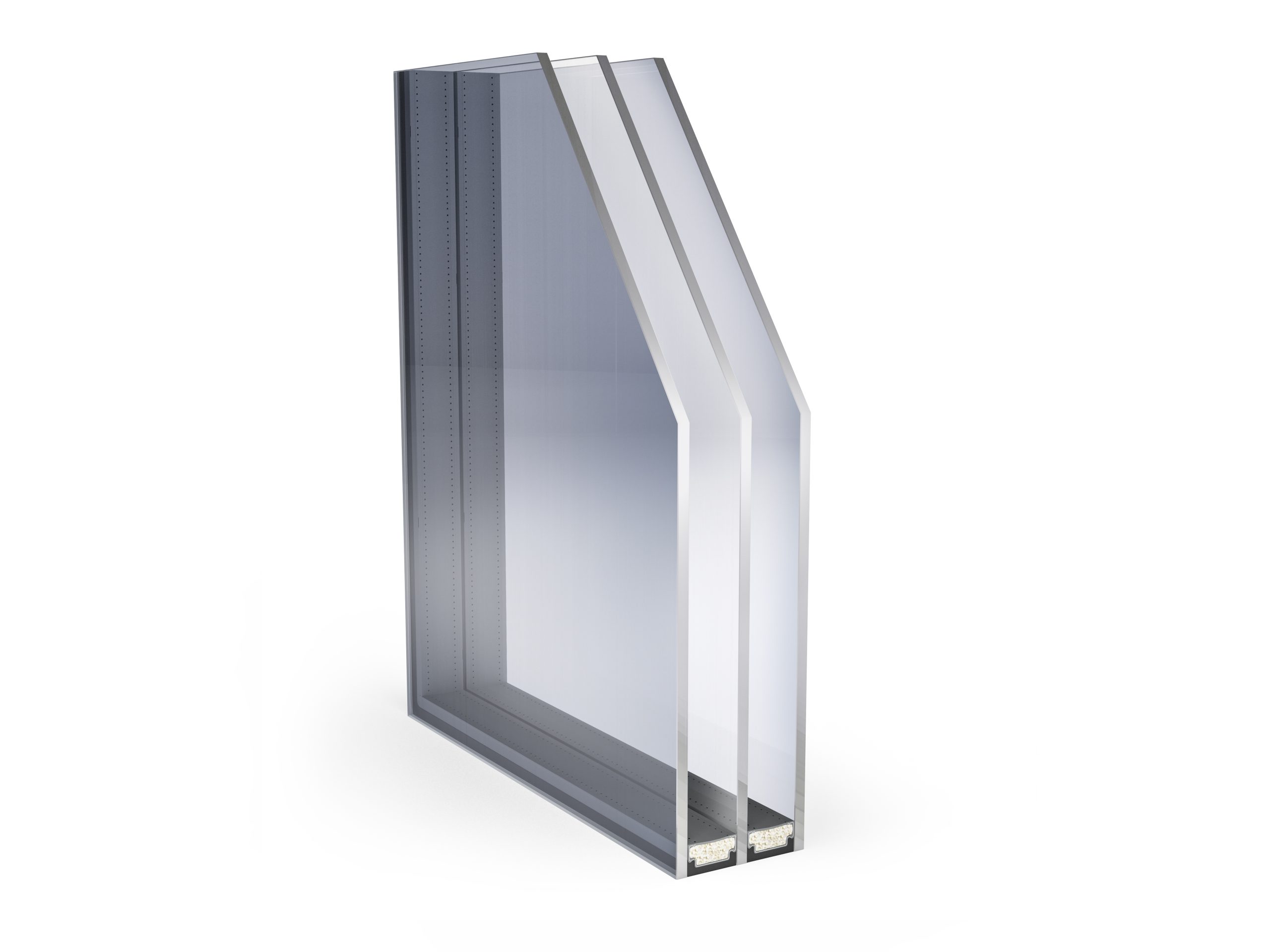Windows from Europe’s leading window brand now benefit from the new thermally insulated glass from AGC, which saves 10,000 tonnes of CO2 in production every year.
It is well known that Internorm’s high-quality windows and doors increase the energy efficiency of living spaces. Now Europe’s leading window brand is taking another major step towards sustainability: the widespread introduction of ‘low-carbon iplus thermally insulated glass’ offers a CO2 reduction of over 45 per cent compared to the previous standard glass. Extrapolated to the year 2025, Internorm will indirectly save around 10,000 tonnes of CO2.

Sustainable production through holistic process analysis
Glass is an elementary component of window production and therefore a focus for reducing emissions. Conventional float glass with a thickness of four millimeters causes around 10.3 kg CO2-eq per square meter throughout the entire manufacturing process (cradle to gate). With the new low-carbon float glass, this value is reduced to 5.5 kg. Internorm is currently converting its production to the new standard low-carbon iplus glass across all its facilities and has been installing the thermal insulation glass in all new windows since the beginning of 2025. The glass is supplied by the Belgian manufacturer AGC Glass Europe.
‘During the development of Internorm window systems, the entire production process right through to delivery to the customer was assessed in order to reduce greenhouse gases,’ stresses Internorm co-owner Christian Klinger. The significantly reduced CO2 footprint of the low-carbon glass is resulting, among other things, from the use of low-emission raw materials, the use of highly efficient melting furnaces including electric boosting, the use of renewable energies, and the optimisation of logistics. The low-carbon glass also consists of at least 50 per cent recycled content.
Iplus also sets technical standards. The coating of the thermally insulated glass is located on the inside of the outer and inner panes of the glass unit and therefore well protected.
The optimised insulating properties of the windows make an additional contribution to sustainability.
Four pillars of sustainability
Internorm’s focus on sustainability is based on four pillars:
- longevity through highest quality
- maximum energy efficiency
- sustainable product design
- environmentally friendly production
The longevity of the products is guaranteed by the highest quality and technology standards, which are constantly reviewed and further developed. For this reason, Internorm offers above-average warranties, including a 30-year security warranty.
Thanks to their high energy efficiency, Internorm’s quality products also hugely reduce energy requirements – up to 76 per cent compared to single-glazed windows. In addition to the new low carbon glass, a closed-loop recycling economy is also a high priority. Internorm favours materials with a high recycled content and a reduced CO2 footprint.
Did you know that Internorm’s uPVC windows can be recycled up to seven times? This allows valuable resources to be conserved.

Internorm is committed to environmentally and climate-friendly production: PV systems with a total output of 3,300 kWp have been installed at all three production sites. According to estimates from the Austrian Energy Saving Association, an average annual output of 2.7 million kilowatt hours, which is equivalent to the annual equivalent to the annual electricity requirements of over 900 households. In addition, Internorm now procures almost 100 per cent of its company-wide electricity requirements from renewable sources.
Throughout 2025 alone, Internorm’s greenhouse gas emissions will be indirectly reduced by around 10,000 tonnes thanks to AGC’s EPD verified low carbon iplus glass. This corresponds to 1,782 circumnavigations of the earth with a mid-range car with average CO2 emissions of 140 grams per kilometre.
When purchasing Internorm windows and doors from your local Internorm distribution partner, you know that the products use sustainable materials and production methods focus on using green energy, recycling, and reducing the use of water. For further details, read the blog Internorm’s Commitment to Sustainability and Reducing Carbon Footprint.
Find your local Internorm distribution partner and showroom on our homepage.
